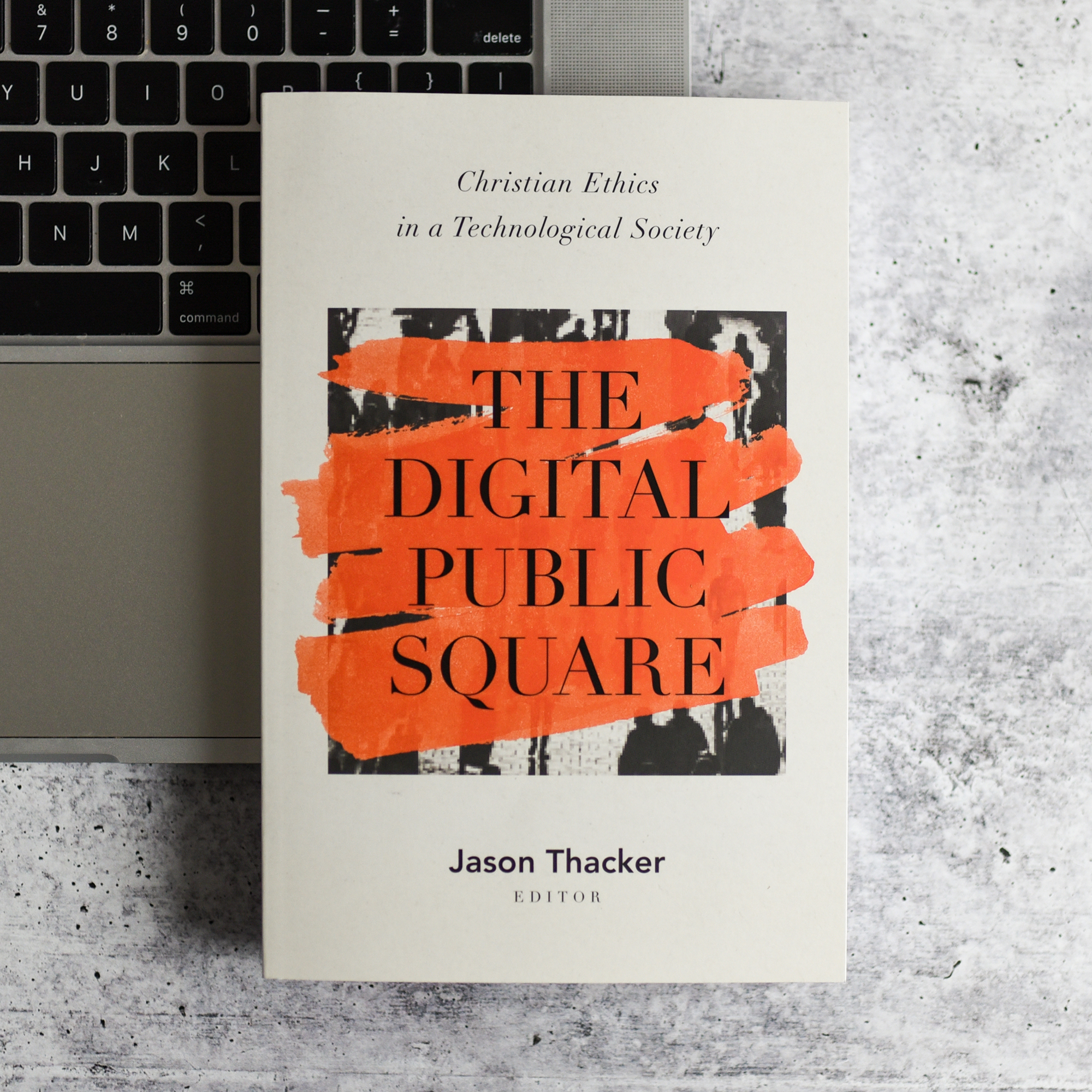On Monday, May 24, Florida Gov. Ron DeSantis (R) signed a new bill into law regulating content moderation and online governance in the state on social media platforms. This bill is the first state bill to become law on these issues, with other states including Arkansas, Kentucky, Oklahoma, and Utah currently considering similar legislation.
DeSantis championed the bill as a collaborative effort at the press conference where he signed the bill into law, highlighting how these major social media companies have inconsistently applied their often ill-defined content moderation policies or have not been transparent in the application or design of those policies.
What is in the bill?
The Florida legislature passed SB 7072 Stop Social Media Censorship Act the week before, which includes multiple provisions curtailing content moderation in the state, such as empowering the state election commission to impose fines — up to $250,000 per day if a statewide candidate is banned from the platforms, with lesser fines for candidate of local office.
The bill contains other major provisions like prohibiting the platforms from taking “any action to censor, deplatform, or shadow ban a journalistic enterprise based on the content of its publication or broadcast” and forbidding the removal of content from news outlets above a certain size. It also empowers Floridians to sue these platforms as individuals if they believe that content moderation standards or policies have been inconsistently applied to them. The stated intent of the bill is to regulate the powerful social media companies that some argue have unfairly moderated content and users on an ideological basis, often interpreted through a partisan lens.
DeSantis tweeted, “Floridians are being guaranteed protection against the Silicon Valley power grab on speech, thought, and content. We the people are standing up to tech totalitarianism with the signing of Florida’s Big Tech Bill.” The governor decried that these “Big Tech” companies act as a “council of censors” and mentioned that they should be treated like common carriers.
Similar arguments were made by Supreme Court Justice Clarence Thomas in an April concurrence released alongside a decision on a 2017 lawsuit brought concerning President Trump’s blocking of individual users on Twitter. Of note, the Florida bill would not apply to Trump’s permanent suspension from Twitter and the indefinite ban from Facebook, which has been a controversial decision recently upheld by the newly created Oversight Board. The Florida bill only applies to candidates for state office, but its wide-ranging effects will likely be seen throughout the rest of the nation.
Big Tech censorship
Social media and the outsized influence of technology companies on our public discourse is one of the rare bipartisan points of agreement in society today. But there is little agreement on the particulars. Progressives traditionally argue for more content moderation, especially with the growing influence of misinformation, fake news, and hate speech online. Conservatives, though, have long argued for less moderation due to the notion that conservative speech and values have been unfairly taken down or suppressed — with some users being banned or even specific social media platforms being shut down completely, simply because of the prevailing ideological agenda in Silicon Valley.
These debates are often categorized under the moniker of “Big Tech,” which is designed to signify the outsized influence and ubiquity of these media platforms in the public sphere, though the term fails to account for some of the largest “big tech” companies in the United States, including Microsoft, Disney, Comcast, Verizon, and others. It also is focused on American companies, excluding tech and media giants such as Tencent and Alibaba of China who have concerning records on free speech and religious expression due to the rule of the Chinese Communist Party. The term is specifically intended to include companies like Facebook, Alphabet (Google/Youtube), and Amazon, as well as companies with much smaller user bases that have enormous influence in the digital public square, such as Twitter.
The Florida bill immediately drew criticism from across the ideological perspectives, but for very different reasons. More progressive outlets mocked the bill for its blatant disregard for free speech and spoke of a plethora of lawsuits to be filed challenging the constitutionality of the bill. The Washington Post interviewed Santa Clara University law professor Eric Goldman, who “described the bill as bad policy and warned that some of its provisions are ‘obviously unconstitutional’ because they restrict the editorial discretion of online publishers.”
Goldman also pointed out that the Florida bill may run afoul of Section 230 of the Communications Decency Act, which is designed to shield these companies from litigation over third-party content on their platforms. Section 230 was enacted in 1996 on a bi-partisian basis to encourage these platforms to moderate content under “good faith” policies, removing content that is “obscene, lewd, lascivious, filthy, excessively violent, harassing, or otherwise objectionable.” Conservative and free speech attorney David French argues, “the bill’s provisions compel private corporations to host (and also promote through application of their algorithms) speech they would otherwise reject. Not only do these provisions of state law conflict with (Section 230), they violate key First Amendment precedents that grant private citizens broad protections against compelled speech, protect the independent political speech of private corporations, and protect all Americans against vague and overbroad statutes.”
While some conservatives support the intent of the bill, they spoke of the overly broad nature of the bill and the interesting carve outs for certain companies operating in Florida. The carve out is for “any information service, system, Internet search engine, or access access software provider operated by a company that owns and operates a theme park or entertainment complex.” This would exempt Disney and Comcast/Universal from these new moderation and content rules, even as they operate in the mass media space.
Other noted conservatives such as Henry Olsen of the Ethics and Public Policy Center and Andrew Walker of Southern Seminary argue that this bill is needed in order to ensure access to all political speech, similar to the common carrier regulations on television, radio, and print media. Walker notes that in a world of competing visions of the goods, certain rights can and should be curtailed in the pursuit of the common good of access to information, especially political speech. It should be mentioned that while this access to political speech is a public good, we also should call our public and civic leaders to higher standards of truthfulness and decorum given the role and responsibilities they have by nature of their position in society.
Though this debate isn’t actually over access to all political speech in general but particular access to speech that is deemed by these companies as inciting violence or spreading misinformation that negatively affects the common good of safety and truthfulness.
But there is a concerning track record of these companies labeling certain religious and social beliefs as inherently bigotted and hateful, in particular issues surrounding transgenderism and human sexuality. As a people who claim an objective understanding of truth and human nature, we must be cautious to not label speech we disagree with as misinformation, which is common throughout our increasingly polarized and tribalistic society. Misinformation is not in the eye of the beholder, even if it has become a partisan tool.
The role of government in seeking the common good
As many noted public and political theologians have argued, the government does have a role in protecting the rights of citizens and the common good but up to a point. David VanDrunen argues in his recent book, Politics After Christendom, “every human community and institution must reckon with the degree of diversity it will embrace, or at least tolerate. No institution can stand completely open.” The question about the role of government in these debates is to what extent should the government be involved and what degree of toleration will be applied when disparate views of the common good and human dignity clash in the digital public square.
Does it actually serve the best interest of the public if a politician or user pushes misinformation to the extent that it actually leads to violence? Does the good of safety ever outweigh the good of free speech? Is free speech actually an instrumental good whose goal is to push back on the over reaching hand of government instead of private entities with their own speech rights? Obviously governments are accountable to the public in ways that the technology industry isn’t, but are we comfortable with that level of power over private entities and speech residing with the government, especially if those in charge may change with the next election cycle?
These are complicated questions that are often layered in partisan politics and talking points that need to be addressed in a nuanced and careful manner, particularly by those in the conservative movement. Many of these exact questions have been debated for decades by those specializing in content moderation and digital governance, well before many of these flashpoint issues arose to public awareness.
While I am unable to expand on each of these issues in this essay, it is important for Christians to understand the nuance of this debate and the potential ramification of these decisions to the common good. One of the key areas of work to be done is building out a public theology for the digital age, which includes a policy oriented advocacy effort with these influential companies rather than simply relying on the government to dictate and set the rules.
While the coverage of this Florida bill has primarily focused on access for politicians, it is much broader than that and will have far-reaching implications on the relationship between the government, the people, and these companies who provide these platforms for society. The bill actually is reminiscent at certain parts to the privacy laws implemented in the GDPR and CCPA giving individual citizens the right to sue these companies for violating their “rights”. In the case of GDPR and CCPA, it’s the often ill-defined right to privacy grounded in the unfettered pursuit of expressive individualism, and in the case of this Florida law, the unfettered pursuit of free speech. Though, all rights must be balanced in this broken world and oriented to the good, the problem is that our society and the larger world have very different visions of the good.
This leads to very different approaches to solutions for the rise of these platforms and their influence in the digital public square. Even amongst conservatives, there are radically different understandings of the role of government, free speech, and regulation. But we must keep in mind that while there are differences in approach, many of those involved in these debates have the same overall goals. Demonizing or outlandishly mocking friends will not push the conversation forward or achieve the goals of balancing these freedoms in the digital public square. The differences often lie in engagement, rather than the content of the actual issues.
Need for policy-oriented engagement
While this debate continues, two areas of involvement are crucial from Christians: we need a more robust public engagement on these moderation policy issues and a way to rally together for a common change. One element of this vision for the digital public square is significant investment in key institutions that are equipped to work with the policy and moderation teams at these companies, instead of simply opting for social media activism.
This means earning a seat at the table through long-term nuanced and thoughtful engagement on particular policy issues such as privacy, hate speech, violence, international governance, and more. Historically, this is exactly how the conservative movement has seen such progress on issues such as abortion, free speech, and religious freedom. These policy issues typically involve NGOs and think tanks devoted to governmental affairs. But what if these institutions took a similar approach to the technology industry by building our teams to organize engagement and develop resources to better inform these companies on faith perspectives and common good accommodations in a pluralistic society?
Instead of defaulting to a government that must step in to solve all of our problems, we need to seek policy-oriented solutions and common good accommodations if we are to see true and lasting change in better policies that better reflect the diversity of thought on some of the most important issues of the day and champion free expression for all.










